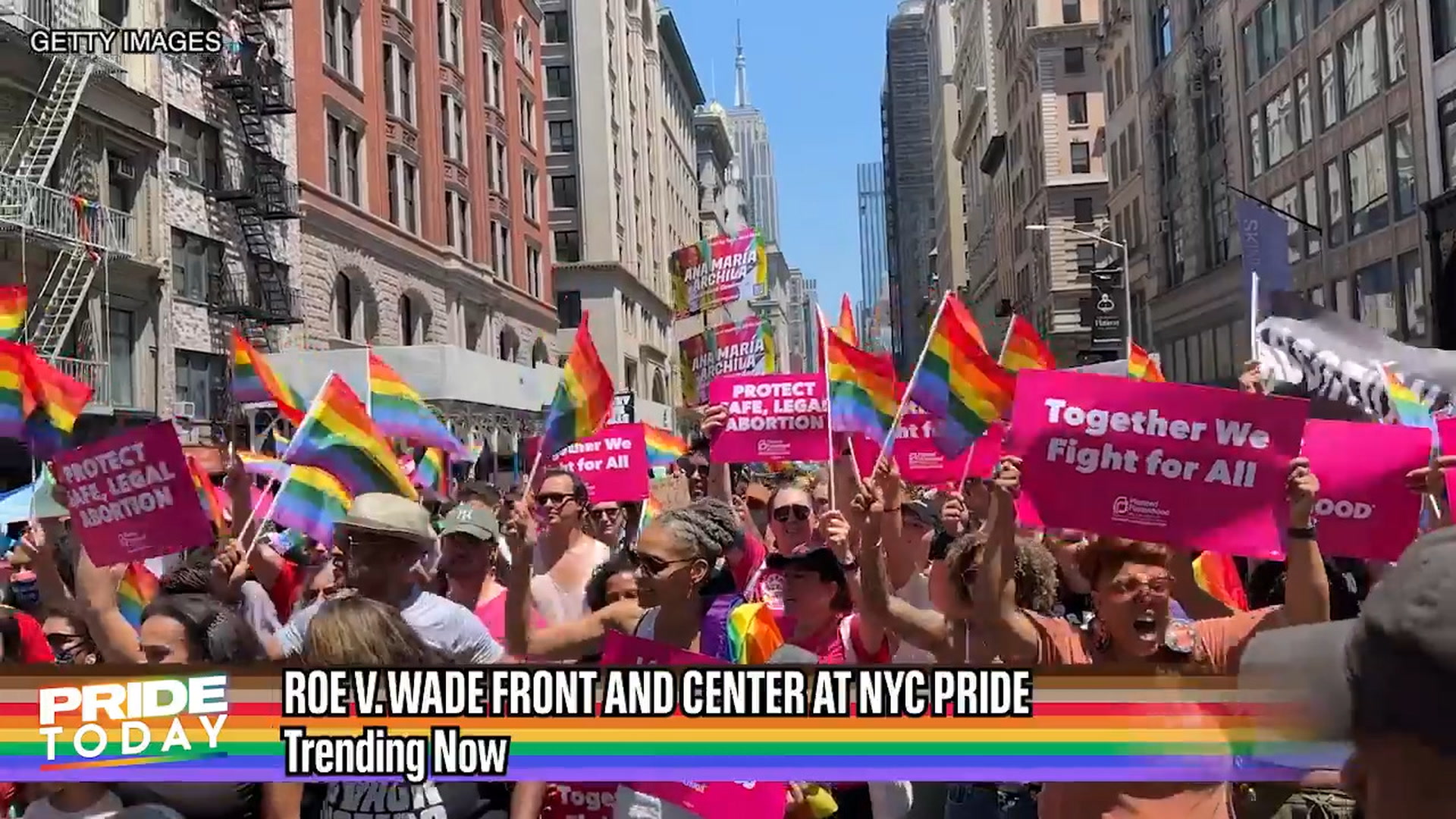Views expressed in The Advocate's opinion articles are those of the writers and do not necessarily represent the views of The Advocate or our parent company, Equal Pride.
This morning, I woke up at 5:30 so that I could legally marry my fiance. Despite our wedding originally being set for 2024 and only getting engaged in early April, I know that the news surrounding Roe is dire. As an abortion activist, I've seen firsthand that stripping one right simply starts a domino effect: more will fall. So this morning I married the love of my life while I still can as a queer person, and tomorrow I will continue to fight for abortion access for all.
In my last piece for The Advocate, I argued that queer people need access to abortion too and that the then-impending Supreme Court decision on Roe v. Wade would not affect only straight cis women but trans and nonbinary people as well. Now the day has come that the federal right to abortion has been overturned, and states have been left to decide whether or not and how severely to restrict access to abortion. The LGBTQ+ community is at risk.
The reality is, queer people do need abortions. People who can get pregnant are in relationships with people who can get them pregnant, regardless of their sexuality or gender identity. Queer and trans people who are pregnant still receive fatal diagnoses, and unfortunately, people can become pregnant by way of assault. Abortion is important, and our community needs access to it too.
But at the end of the day, no one should have to experience trauma or violence in order to access and exercise their rights, especially the right to control their own body. Should trans people be on the brink of suicide from body dysmorphia before being granted access to gender-affirming care, or should pregnant people have to prove that they were raped in order to get an abortion? How does one even prove rape these days? Everyone, regardless of circumstance, deserves full access, uninhibited by law, to the health care they need.
The fall of Roe opens the door for more than just the outlawing of abortion access. Queer people who rely on IVF, either because they are carrying a wanted pregnancy to start a family or because a surrogate is, may soon find that they no longer have this option. The trans men who rely on hormonal birth control to stop the periods that cause them excruciating dysmorphia may no longer be able to access the care that is so fundamental to their health care and identity.
In fact, as Justice Thomas plainly wrote, openly being a part of the LGBTQ+ community, let alone the right to equal marriage, may soon be a short-lived chapter in our history books. In a concurring opinion, he writes that Griswold v. Connecticut, Lawrence v. Texas, and Obergefell v. Hodges are all open for discussion and revocation due to the fact that the right to privacy, was a key basis for those decisions, as it was for Roe v. Wade. Now that Roe is gone, the door is open for all three of these decisions to be reversed. Griswold upholds a person's right to contraception without government interference. Lawrence ruled that criminal prosecution for those who "commit sodomy" is unconstitutional. And Obergefell, of course, protects the right to queer marriage.
All court cases that cited Amendment 14a of the Constitution are now subject to reversal if a case comes before the current Supreme Court. Although Thomas didn't say it, losing Roe also means the potential loss of Loving v. Virginia, which ruled that interracial marriages were legal. To be very clear: Losing Roe means that we as queer people have not only lost the right to abortion but also may lose the right to having sex in our own homes, the right to use contraception, the right to interracial relationships, and the right to get married. BIPOC queer and trans people will be disproportionately affected by the loss of these fundamental civil rights.
The time to act is now. It is too late to save Roe, but it is not too late to help those in affected areas. Join your local practical support organization and volunteer to transport patients seeking care. Hold a fundraiser for an abortion fund. Write letters to the editor and call your state representatives every single day and demand they protect abortion rights. The demand for bodily autonomy unites us all.
Steph Black is a queer Jewish abortion activist and writer in Washington, D.C. Read more of her work and subscribe to her newsletter at StephBlack.blog.
Follow More Advocate News on Pride Today Below
















Charlie Kirk DID say stoning gay people was the 'perfect law' — and these other heinous quotes
These are some of his worst comments about LGBTQ+ people made by Charlie Kirk.